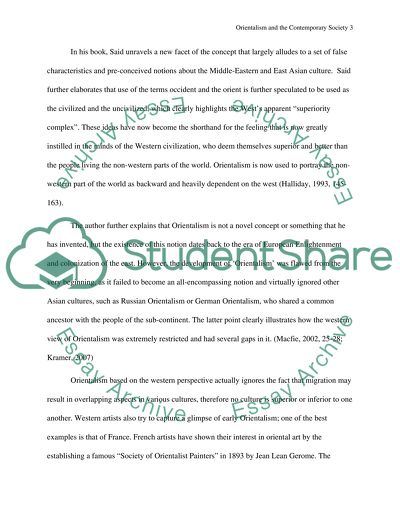Cite this document
(“Explicate and discuss Edward Said's notion of 'orientalism'. How Essay”, n.d.)
Explicate and discuss Edward Said's notion of 'orientalism'. How Essay. Retrieved from https://studentshare.org/sociology/1463026-explicate-and-discuss-edward-saidyies-notion-of
Explicate and discuss Edward Said's notion of 'orientalism'. How Essay. Retrieved from https://studentshare.org/sociology/1463026-explicate-and-discuss-edward-saidyies-notion-of
(Explicate and Discuss Edward Said's Notion of 'Orientalism'. How Essay)
Explicate and Discuss Edward Said's Notion of 'Orientalism'. How Essay. https://studentshare.org/sociology/1463026-explicate-and-discuss-edward-saidyies-notion-of.
Explicate and Discuss Edward Said's Notion of 'Orientalism'. How Essay. https://studentshare.org/sociology/1463026-explicate-and-discuss-edward-saidyies-notion-of.
“Explicate and Discuss Edward Said's Notion of 'Orientalism'. How Essay”, n.d. https://studentshare.org/sociology/1463026-explicate-and-discuss-edward-saidyies-notion-of.


